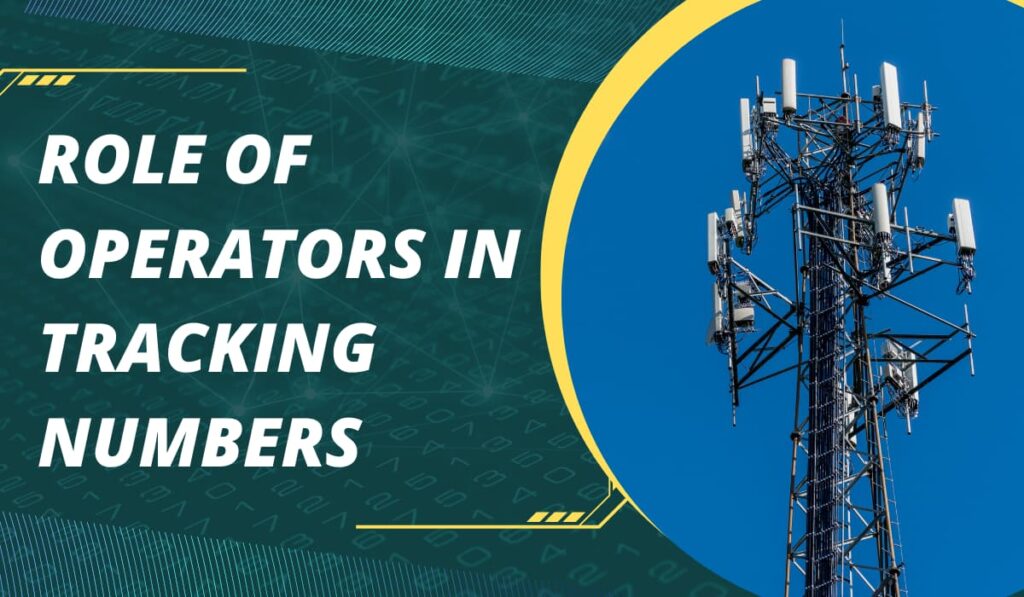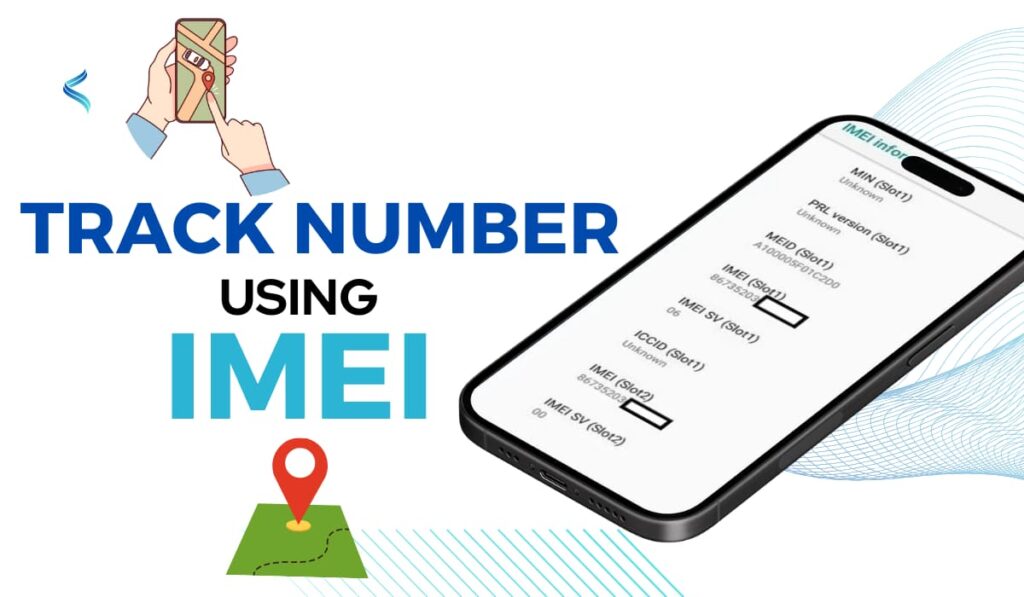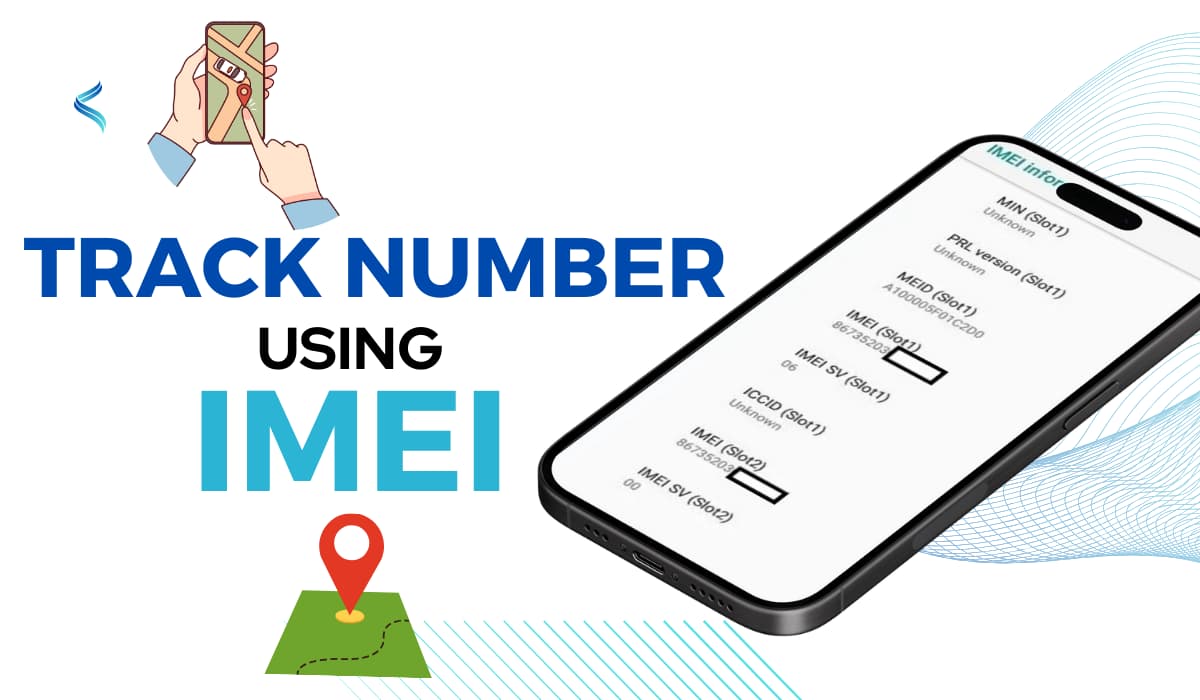We use our mobile phones a lot in today’s time. Today, mobile phones are not only used to talk to people. You can do almost everything online on your smartphone. If you lose your mobile phone, your entire day will be ruined. There is also a risk that your private information may get leaked.
Mobile operators play a big role when your mobile gets lost or stolen. They can help you to find the location of your lost or stolen mobile. The mobile operators can also stop the misuse of your lost or stolen mobile.

You can also check our safe tool to Trace Mobile Number
What are mobile operators and their basic functions
You use mobile phones for many things in your daily life. Mobile operators are companies that provide services to mobile phone users like you. They allow you to make calls, send text messages and use the internet on your mobile.
These mobile operator companies have big towers installed at different locations. These towers send and receive signals. When you use your mobile phone, the signal goes through these towers. This is how your call gets connected or your data is sent/received.
Basic functions of mobile operators:
- Connecting Calls: Mobile operators help you make and receive calls on your mobile. They manage the signals so you can talk to someone else through your phone.
- Sending Text Messages: Mobile operators also take care of sending and receiving text messages for you.
- Internet Services: You can access the internet on your mobile because of mobile operators. They provide you with internet access to browse websites, download apps and stream videos.
- Customer Support: If you face any issues with your mobile services, you can contact the customer care of mobile operators. You can call them or visit their stores, and they will help you.
- Plan Subscriptions: Mobile operators offer different plans with a set number of calls, text messages and data. You can select a suitable plan as per your mobile usage.
This is how mobile operators make it convenient for you to use your mobile phone.
How Operators Help in Tracking Phones
You will be glad to know how mobile operators also help to track your lost or stolen mobile phones. They use some important methods for this:
Network-Based Location Tracking
Mobile operators use a method called cell tower triangulation to find your phone’s location. In this method, they measure the distance between your phone and nearby cell towers. Your phone sends signals that reach these towers. The operators calculate how long the signal takes to reach each tower. Based on this, they can estimate the location of your phone.
The accuracy depends on the area. In cities with many cell towers, the location can be quite precise, sometimes within a few hundred meters. But in rural areas with fewer towers, the location may not be as exact.
IMEI Tracking and Blacklisting

Every mobile phone has a unique number called IMEI (International Mobile Equipment Identity). Mobile operators can use this IMEI number to track and disable stolen phones. If your phone is reported as stolen, the operator can add its IMEI to a blacklist. Your phone will then become unusable on any network using this blacklist.
This process reduces the risk of privacy and data loss as a blacklisted phone cannot be easily used or sold.
Cooperating with Law Enforcement
In many cases, mobile operators work with the police to help track and recover stolen phones. When you report your phone as stolen, the operator immediately provides details like call logs and location information to the police. This assists them in finding your phone and catching the thief.
However, this cooperation follows legal requirements to protect your privacy rights. The police need proper legal documents like a warrant to get detailed information from the operators.
However, Mobile operators also face some challenges while tracking lost or stolen phones. These include technical difficulties and privacy concerns:
Technical and Privacy Challenges
The accuracy of tracking the number can be affected if your phone is switched off or the SIM card is removed. In such cases, the phone won’t communicate with the operator’s network. Dense urban areas or buildings can also interfere with the signals needed for precise location tracking using cell tower triangulation.
Operators also have to follow strict privacy regulations. They have to ensure any tracking is legally justified and they have required permissions to collect and share your location data. So the process of maintaining user privacy while ensuring security is another major challenge
Limitations:
- If your phone is switched off, it won’t send signals to cell towers and this makes network-based tracking impossible.
- Removing the SIM card can also prevent tracking through the network as the phone may lose network connectivity.
Preventive Measures by Operators
To prevent misuse of lost/stolen phones and assist recovery, operators offer services like:
- Remote Locking: This feature lets you lock your phone remotely until the correct credentials are entered.
- Remote Wiping: If your phone can’t be recovered, operators can remotely wipe its data to prevent unauthorized access.
Conclusion
You must understand that mobile operators are very important in dealing with lost or stolen mobile phones. They use advanced tracking technologies and work closely with the police. This plays a great role in securing and recovering lost/stolen phones.
However, the effectiveness of their efforts depends a lot on the cooperation between you and the mobile operators.
As a mobile user, you also need to be proactive and aware of the preventive measures and recovery options provided by your mobile operator. It is better to be prepared to avoid such unexpected situations.


